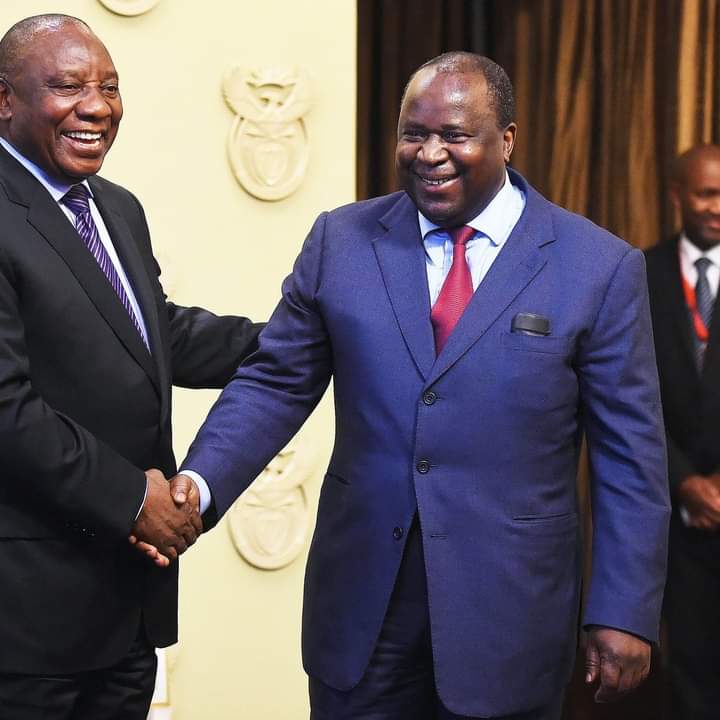EDITORIAL COMMENT BY BUSINESS DAY NEWSPAPER OF SOUTH AFRICA
Ramaphosa misses a trick with Mboweni reprimand over Zambian central bank
The president could have used the episode to reaffirm the value of independent central banks.
26 AUGUST 2020 - 05:10
It was just more than a month ago that Zambia met with IMF representatives over the country’s application for financial support to deal with the impact of Covid-19.
It was similar to the rapid credit facility by which SA was granted a $4.3bn (R72bn) loan, the largest of any country under the programme. So far, Zambia isn’t one of the recipients.
While the IMF loans to help countries deal with crises don’t come with the structural conditionality of traditional programmes, there is one requirement — that recipients demonstrate an ability to pay the money back. As of the middle of May, Zambia wasn’t seen to be fitting the bill.
“In cases where the debt is unsustainable, the member must take steps to restore debt sustainability to access fund financing,” the IMF was quoted on Bloomberg as saying in response to questions about Zambia’s potential eligibility for assistance.
The IMF statement on July 15 was noncommittal, saying discussions “will continue as the authorities determine their policies and priorities in the formulation of the revised 2020 budget, as well as the medium-term fiscal stance needed to restore debt sustainability, revive growth and lower poverty”.
For a country that is seeking outside help and whose policy credibility is under question, suddenly firing a well-respected central bank governor was a misguided step. The markets responded accordingly, with the kwacha reaching a record low.
The effects on the people of Zambia should have been of the greatest concern to President Cyril Ramaphosa — not finance minister Tito Mboweni’s tweets questioning the firing.
In its report, the IMF noted that the social and economic impact of the pandemic will be “heavy” on Zambia; that the economy could shrink 5% in 2020; and that the number of people living in extreme poverty will increase. It is those people who will suffer as a result of President Edgar Lungu’s shock decision to dismiss Denny Kalyalya.
With annual inflation already running at about 16%, at the very least the currency depreciation will mean more hardship for the country’s poor, who will struggle even more to afford basics.
It’s not hard to work out why Kalyalya, who was part of the Zambian delegation that met the IMF in July, was fired. He had repeatedly urged the government to cut spending, according to Bloomberg, which also quoted Grieve Chelwa, an economics lecturer at the University of Cape Town’s Graduate School of Business, as saying it may also have been a response to the government’s failure to amend the constitution and grab the power to decide policy on money printing.
One would think that Zambia is close enough to Zimbabwe for its leaders to know where printing money to fund government spending leads. And as for SA, we should, by now, have learned that sitting aside and worrying about diplomatic niceties while economies implode around us is not sound strategy.
While Mboweni could have avoided emotive words such as threatening to mobilise against Lungu, it would take a creative mind to think he was advocating anything like regime change. For Ramaphosa, this should have been an opportunity to reiterate that this is no time to be meddling with the independence of the central bank.
Further away, Turkish President Tayyip Erdoğan fired his central bank governor just more than a year ago, replacing him with a candidate who would be more likely to do his bidding. Today Turkey has the highest inflation rate among similar economies. Its currency is down 7% in the past month, despite an improvement in sentiment towards emerging markets.
Last week, Fitch Ratings revised the country’s credit rating to negative, citing, among other things, “weak monetary policy credibility”. That’s in contrast to SA, where an independent, inflation-targeting central bank has been seen by credit ratings agencies as one of its strengths during an otherwise dismal period for the economy.
Ramaphosa gets a lot of credit for defending the SA Reserve Bank against political attacks. And rightly so. It’s a pity that this week he chose to use his pulpit to appease Lungu instead of defending a principle that has served this country well.
Business day.


